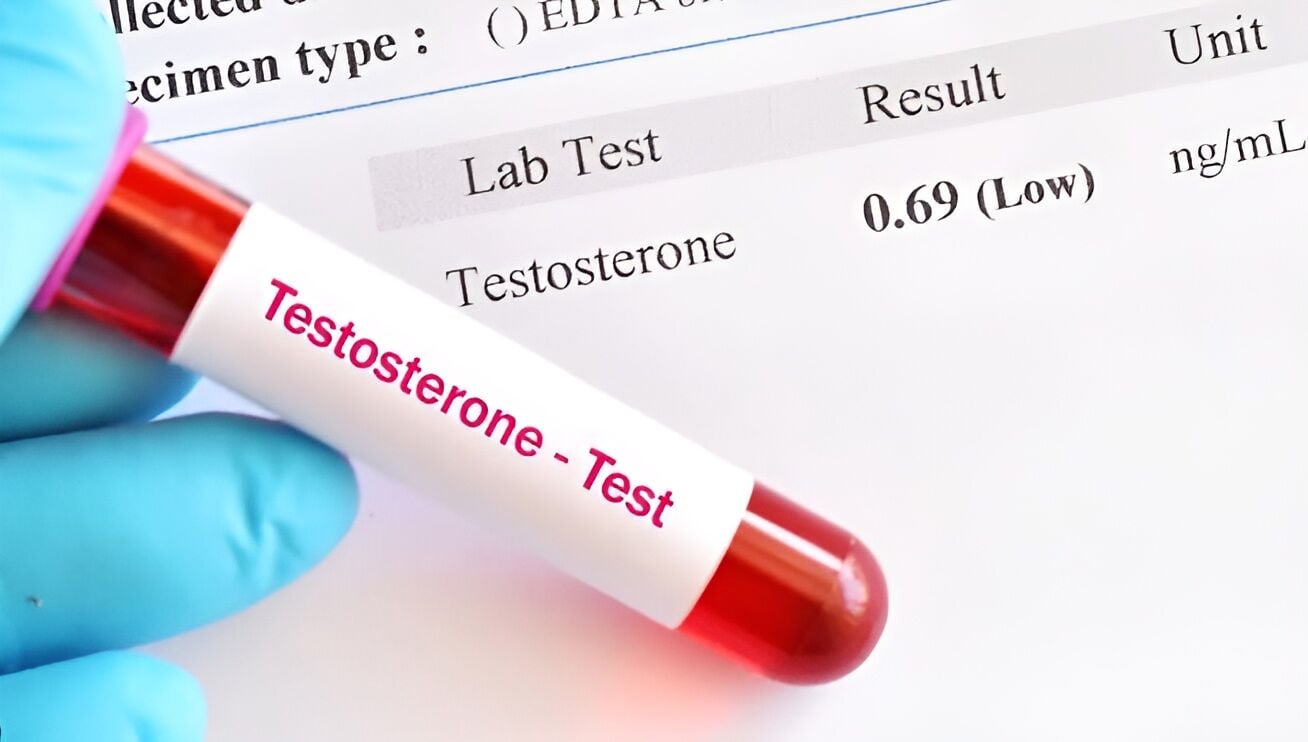Low testosterone levels increases risk of dying from cardiovascular issues for men

A groundbreaking study has recently uncovered a concerning link between low testosterone levels in men and a higher risk of mortality, particularly from cardiovascular diseases (CVD).
The findings of the study underscore the critical role testosterone plays not just in male characteristics and sexual health but also in overall physical well-being.
The study: Unveiling the connection
The study, a systematic review and meta-analysis led by researchers from the University of Western Australia, examined data from 11 studies involving approximately 24,000 men from various regions, including Australia, Europe, and North America. These men had their total testosterone levels measured using mass spectrometry and were followed for a minimum of five years. The researchers analysed baseline levels of various hormones, including testosterone, sex hormone-binding globulin (SHBG), luteinizing hormone (LH), dihydrotestosterone (DHT), and estradiol, to identify any correlations with cardiovascular events, cardiovascular deaths, or deaths from any cause.
The findings were striking: men with low total testosterone levels (below 7.4 nmol/L or 213 ng/dL) had a greater risk of dying from any cause. Those with very low testosterone levels (below 5.3 nmol/L or 153 ng/dL) were at an even higher risk of dying from cardiovascular disease. This discovery highlights the necessity of recognizing low testosterone as a potential marker for severe health risks.
Understanding the impact of low testosterone
Testosterone, often associated with the development of male characteristics and sexual desire, has far-reaching effects on the body. It plays a crucial role in maintaining muscle mass, bone density, and overall mood. Its deficiency can lead to a range of health issues, many of which contribute to an increased risk of cardiovascular problems.
Low testosterone is often accompanied by other health problems such as obesity, diabetes, and hypertension, which further elevate the risk of cardiovascular events and mortality. This relationship suggests that testosterone may play a more integral role in maintaining overall health than previously understood.

Health risks associated with low testosterone
Low testosterone levels can have several adverse effects on a man’s health. Beyond the well-known issues of reduced sexual desire and erectile dysfunction, low testosterone can lead to:
- Loss of bone density: Low testosterone can result in decreased bone density, making bones more susceptible to fractures.
- Decrease in muscle mass: Testosterone is vital for muscle development and maintenance. Low levels can lead to muscle atrophy and physical weakness.
- Weight gain: Men with low testosterone often experience weight gain, particularly around the abdomen, which is a known risk factor for cardiovascular diseases.
- Mood swings and depression: Testosterone influences mood regulation. Low levels can lead to moodiness, fatigue, and even depression, affecting mental health and quality of life.
- Increased risk of severe health issues: Perhaps most concerning is the association between low testosterone and more severe health issues, such as heart attacks and strokes. The study highlights that men with lower testosterone levels had a higher incidence of these life-threatening events, underscoring the hormone’s critical role in maintaining cardiovascular health.
Diagnosing and managing low testosterone
Detecting low testosterone levels involves a simple blood test, typically conducted in the morning when testosterone levels are at their peak. The test measures both total testosterone (the combined amount of free and bound testosterone) and free testosterone (the portion that is readily available for use in the body).
If diagnosed with low testosterone, there are several strategies men can adopt to increase their levels and mitigate associated health risks. These include:
- Lifestyle changes: Adopting a healthier lifestyle can significantly impact testosterone levels. Recommendations include losing weight, engaging in regular cardiovascular exercise, avoiding processed foods, and ensuring adequate sleep. Regular physical activity not only boosts testosterone levels but also improves cardiovascular health, which can help mitigate the risk of heart disease.
- Dietary adjustments: Consuming a balanced diet that includes foods rich in vitamins and minerals essential for hormone production can help. Avoiding soy products and limiting alcohol intake are also beneficial. Foods such as eggs, especially with the yolk, can provide nutrients that support testosterone production.
- Supplements: Certain supplements, such as DHEA, vitamin D3, Tribulus, and maca, may help boost testosterone levels. However, it is crucial to consult with a healthcare provider before starting any supplement regimen, particularly for those with underlying health conditions like prostate cancer. While supplements can be beneficial, they must be used cautiously to avoid potential side effects and interactions with other medications.
- Medical interventions: For those who do not see improvements through natural measures, hormone replacement therapy (HRT) might be necessary. This can be administered through various forms, including oral medications, injections, or topical applications like creams, gels, or patches. HRT can help restore normal testosterone levels, improving symptoms and reducing the risk of health complications associated with low testosterone.

Moving forward: The need for awareness and research
This study’s findings highlight the importance of recognizing low testosterone as a significant health risk factor for men. It calls for increased awareness among healthcare providers and the public about the potential dangers of low testosterone levels and the need for timely diagnosis and treatment. Men should not hesitate to discuss symptoms related to low testosterone with their doctors, as early intervention can significantly improve health outcomes.
Moreover, the study underscores the need for further research to understand the mechanisms through which low testosterone contributes to increased mortality risk. As our understanding of testosterone’s role in the body continues to evolve, it is essential to explore its broader implications on men’s health and develop more effective strategies for managing low levels. Future research could focus on identifying specific pathways through which testosterone influences cardiovascular health and other critical bodily functions.
The study findings were published in the peer-reviewed journal: Annals of Internal Medicine.
The link between low testosterone levels and increased mortality risk, particularly from cardiovascular disease, is a critical health issue that demands attention. Men experiencing symptoms of low testosterone should seek medical advice and consider both lifestyle changes and medical treatments to mitigate the associated risks. By addressing low testosterone proactively, it is possible to improve overall health outcomes and reduce the risk of life-threatening conditions. This study serves as a wake-up call to the medical community and the public, emphasizing the need for comprehensive strategies to manage and treat low testosterone effectively.
Readers wanting to do a proper diagnostic of their testosterone levels or wish to consult reputable endocrinologists with access to the latest treatment protocols for low testosterone levels should contact MyMediTravel for recommendations.
Latest Thailand News
Follow The Thaiger on Google News:


























